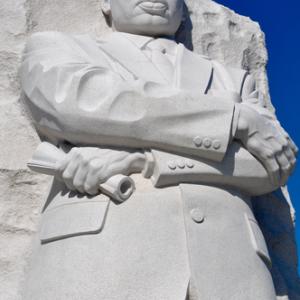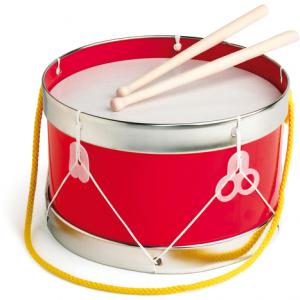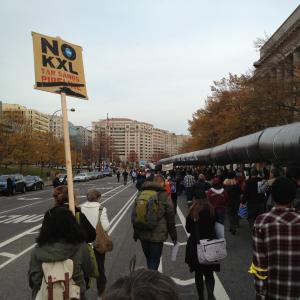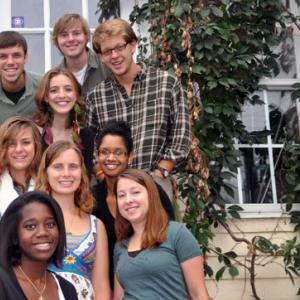Martín was born in southwest Florida, near beaches and swamps, and between tomato fields and orange groves. While he was still a boy, Martín’s family left the sub-tropics and moved to the temperate plains of the Midwest. After growing up in Omaha, Nebraska, he went to Washington University in St. Louis and earned degrees in environmental studies and anthropology. Drawing on his passion for the whole earth community, throughout college Martín worked with various environmental advocacy organizations fighting for a cleaner, more sustainable and carbon-free future.
Upon graduating in 2011, he spent a year in Milwaukee working at the Urban Ecology Center as a volunteer with the Capuchin Franciscan Volunteer Corps. There he enjoyed gardening and cooking with children, and exploring the broader world of plants and animals, hiking and canoeing, and much more with families in the city. He is also deeply grateful for that year of living in intentional community with other full-time volunteers, an experience that fostered incredible personal and relational growth.
Martín is excited to be here in Washington, DC and to be part of the Sojourners staff community. He looks forward to engaging people of faith around the country and mobilizing them to act on issues of peace and justice to continue building the kingdom of God here on earth.
Posts By This Author
Becoming Extremists for Love
If there was ever a fear that the church is splintered, apathetic or dull, the passion and unity on display at the “Why We Can’t Wait” May Revival on Pentecost Sunday earlier this month proved a direct contradiction to that assertion.
The second of five events of Washington DC’s Church-Wide Response to the New Jim Crow brought a diverse group of 50 faithful people to Capitol Hill’s Lutheran Church of the Reformation for an afternoon of song, prayer, worship, education on nonviolence and mass incarceration, and call-to-action to work and pray for a better church and a better world.
Why We Can't Wait
It’s been 50 years since several significant events of the civil rights movement of the 1960s occurred, yet our society is still plagued with systemic racism. It’s been almost 150 years since we abolished slavery in this country, yet many are still enslaved daily by the oppression of discrimination and poverty. While significant strides in equality and justice have taken place, new systems of injustices have been instated and threaten the integrity of our much-stated rights of “life, liberty, and the pursuit of happiness.”
I am most presently thinking of the system of the “New Jim Crow,” something author and advocate Michelle Alexander has awakened society to with the recent publication of her book with that title. The New Jim Crowrefers to the web of injustices related to mass incarceration and the stripping of basic rights of returning citizens reminiscent of the Jim Crow laws of our nation’s history. Today, returning citizens face “legalized discrimination” from employers and landlords, making it extremely difficult for them to get a job or a place to live. Additionally, in many states they are not allowed to sit on a jury or express their right to vote, meaning their voices are stifled.
'Unexpected Gifts' of Community
I’ve been asked several times in the last year or so, “How is it living in community?” Well, you see, that’s not a question to take lightly. Describing living in community takes more than just a quick response to a seemingly simple question. It’s wonderful. It’s difficult. It has its ups and downs. It’s life-giving and sometimes it feels like it takes the life out of you. How are you supposed to relay all that in a simple answer?
“Stepping into community is far riskier than expected. It’s far worse than you expect it to be. But in the end, it’s far better than you could ever imagine.”
With that line, along with the rest of his new book, Unexpected Gifts: Discovering the Way of Community, author Christopher Heuertz offers a thorough reflection on how it is to live in community. Granted, he takes the space of 200 pages. But this book does give some ample reflection to those ups and downs, the failures and the joys — the, indeed, unexpected gifts — of community. With an honest and open tone, Unexpected Gifts reads like a story-filled guide to relationships, to living in community, living as Church, as Christ would have us do.
What Are You Singing: The Little Drummer Boy
“The Little Drummer Boy” tells a wonderful short story of a poor boy who feels he has no gift to give to the baby Jesus. In spite of his lack of gifts, he offers to play his drum for him, to the delight of all in the stable, especially baby Jesus, who smiles at the drummer boy.
Not only is this song fun to sing with its drum-like “pa-rum-pum-pum-pums,” but also it embraces a non-materialistic message that we all need to hear, especially this time of year. In a society of hyper-commercialized Christmas, where we are bombarded with advertisements filled with the pressure to find the perfect gift, “The Little Drummer Boy” challenges this societal expectation. Perhaps the perfect gift is really just ourselves, being who we are, bringing our own gifts and talents to each other and to a world in deep need of healing.
While the boy is poor and feels like he has nothing to offer, he has a drum and plays for those gathered at the stable — and they are pleased. While our society pressures us to perform, to prove our love and appreciation for someone, it is actually the simple sharing of life, being together with family and friends around good food and drink — and maybe even dance and sing (with a drum!) — that is what we truly need or want around Christmas time. I know this is true for me.
Bill McKibben Leads D.C. March to Stop the Keystone XL Pipeline
Midway through his nationwide, one-month Do The Math tour, Bill McKibben — author, environmental activist, and founder of 350.org — attracted a crowd that packed the Warner Theater in downtown Washington, D.C., on Sunday.
Joined both onstage and by video by a diverse group of speakers, including Rev. Lennox Yearwood of the Hip Hop Caucus, author Naomi Klein, and Archbishop Desmund Tutu, McKibben’s Do The Math tour brings to light the stark numbers of our current climate reality, first brought to the public’s attention in his viral article in Rolling Stone this past summer.
The three main numbers are as follows: 2 degrees Celsius is the maximum level of warming our planet can endure before real catastrophe occurs. To stay below 2 degrees C, we cannot burn more than 565 gigatons of carbon dioxide. But the problem is that the fossil fuel industry has 2,795 gigatons in their reserves — five times the safe amount to burn. As is their business plan, to reap the profit from these reserves, the fossil fuel companies plan on burning all of it, “unless we rise up to stop them” states the 350.org website.
Reflections on an Eco-Justice Anacostia River Tour (PHOTOS)
On Saturday, Sojourners sent a group of staff members sailing down the Anacostia River.
But this was no pleasure trip.
Dottie Yunger, from the Anacostia Watershed Society, teamed up with Sojourners’ Creation Care campaign to teach some of our staff and a few other members of the local community about the state of the Anacostia river, how we as people of faith can be better stewards of our God-given resources, and how we can help create a healthier system where all creatures (both human and non-human) can survive and flourish.
Here are a few reflections from the trip.
Millennials' Reflections on the New American Values Survey
On Tuesday, the religion, policy, and politics project at Brookings and the Public Religion Research Institute (PRRI) hosted a forum to release PRRI's fourth American Values Survey (AVS), a large national, multi-issue survey on religion, values, and public policy.
We sent some of our interns to listen in on the findings. Here's what they thought about some of the issues raised by the report.



